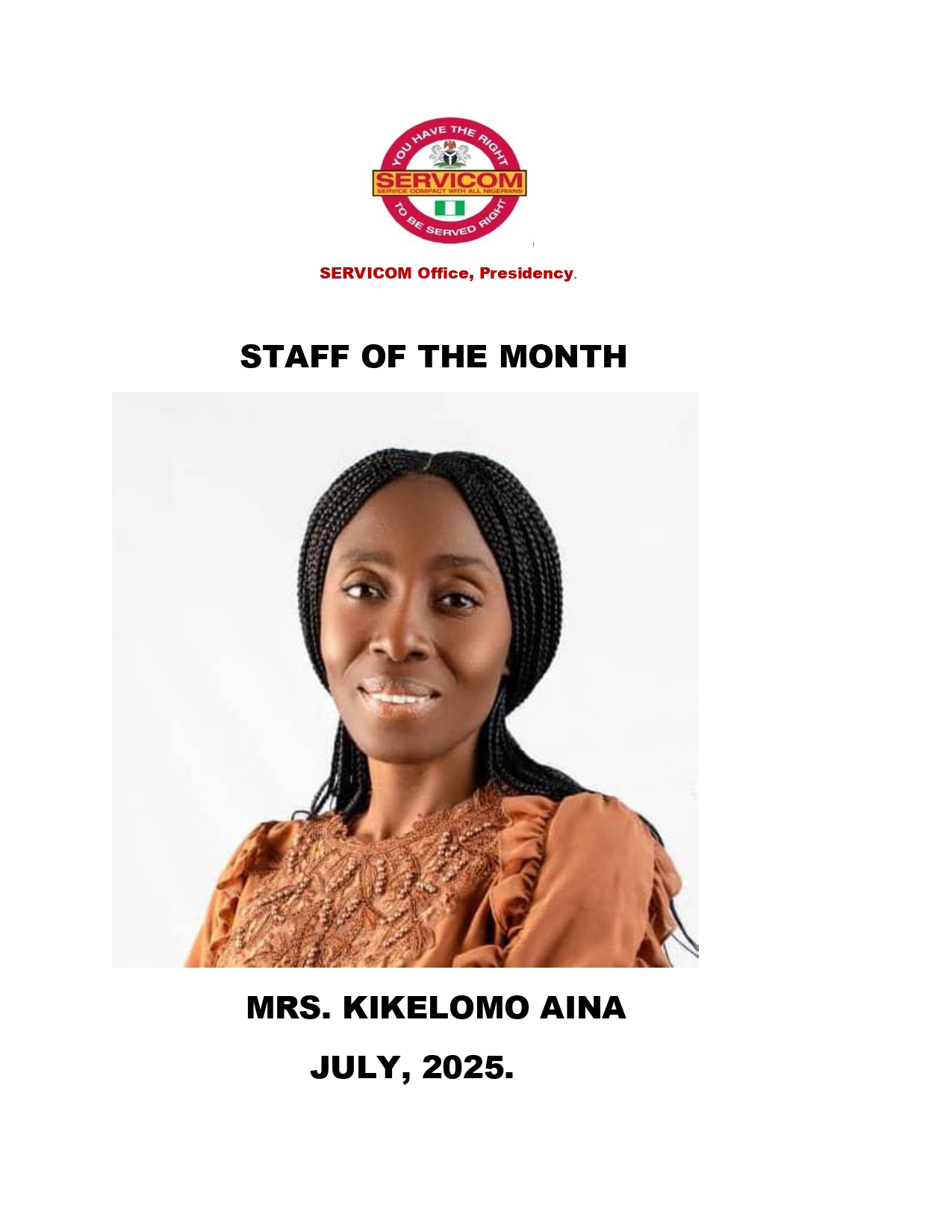Recognizing Excellence: SERVICOM Honours Outstanding Staff for October 2025
At SERVICOM, excellence is not just an expectation it is a culture we actively build, celebrate, and sustain. As part of our commitment to motivating staff and strengthening service values within the public sector, the SERVICOM Office has once again honored outstanding officers who exemplify dedication and professionalism in their daily work.
These recognitions shine a light on the individuals who consistently uphold the principles of timeliness, discipline, respect, and accountability the very principles that shape the quality of service citizens receive across MDAs.
Staff of the Month: Mrs. Funmilayo Oladimeji
Mrs. Funmilayo Oladimeji has been named Staff of the Month for her exemplary work ethic, commitment to duty, and positive influence within the office. Her willingness to go the extra mile and her attention to detail continue to inspire her team and reflect the values that define SERVICOM’s mandate.
Her recognition reinforces a truth we uphold daily:
Outstanding service begins with outstanding attitude.
Most Punctual Staff: Mr. Anthony Ochelebe
Consistency is the foundation of excellence, and Mr. Anthony Ochelebe continues to demonstrate this through his unmatched punctuality. His discipline and time-consciousness set a clear example of professionalism in the workplace.
Punctuality is more than arriving early it reflects respect for work, for colleagues, and for the citizens who depend on public service. Mr. Ochelebe embodies this mindset fully.
Best Dressed Staff: Mr. Nat Okpeje Obe
Presentation remains a vital element of professionalism, and Mr. Nat Okpeje Obe has once again demonstrated refined decorum and spotless appearance, earning him this month’s Best Dressed Staff award.
His consistent display of neatness and elegance reinforces the SERVICOM ethos that public service must be delivered with dignity both in action and in appearance.
Sustaining a Culture of Service Excellence
These recognitions go beyond ceremony; they reflect an intentional effort by SERVICOM to cultivate values that strengthen the entire public service ecosystem. By celebrating staff who demonstrate accountability, discipline, and professionalism, we reinforce behaviors that directly improve the quality of service delivered to Nigerians.
In the words of a member of management:
“When we acknowledge excellence within, we set the tone for excellence in the services we supervise across MDAs.”
Moving Forward
This month’s awardees remind us that every role no matter how routine contributes to the bigger mission of ensuring that citizens receive the service they deserve. Their dedication is a testament to SERVICOM’s ongoing commitment to building a motivated, responsible, and citizen-centered workforce.
Congratulations to our winners, and thank you for your continued contributions to service excellence.





